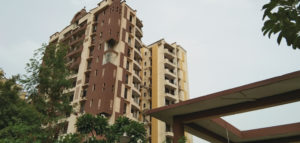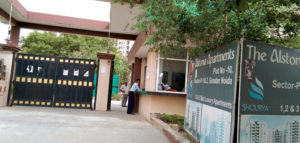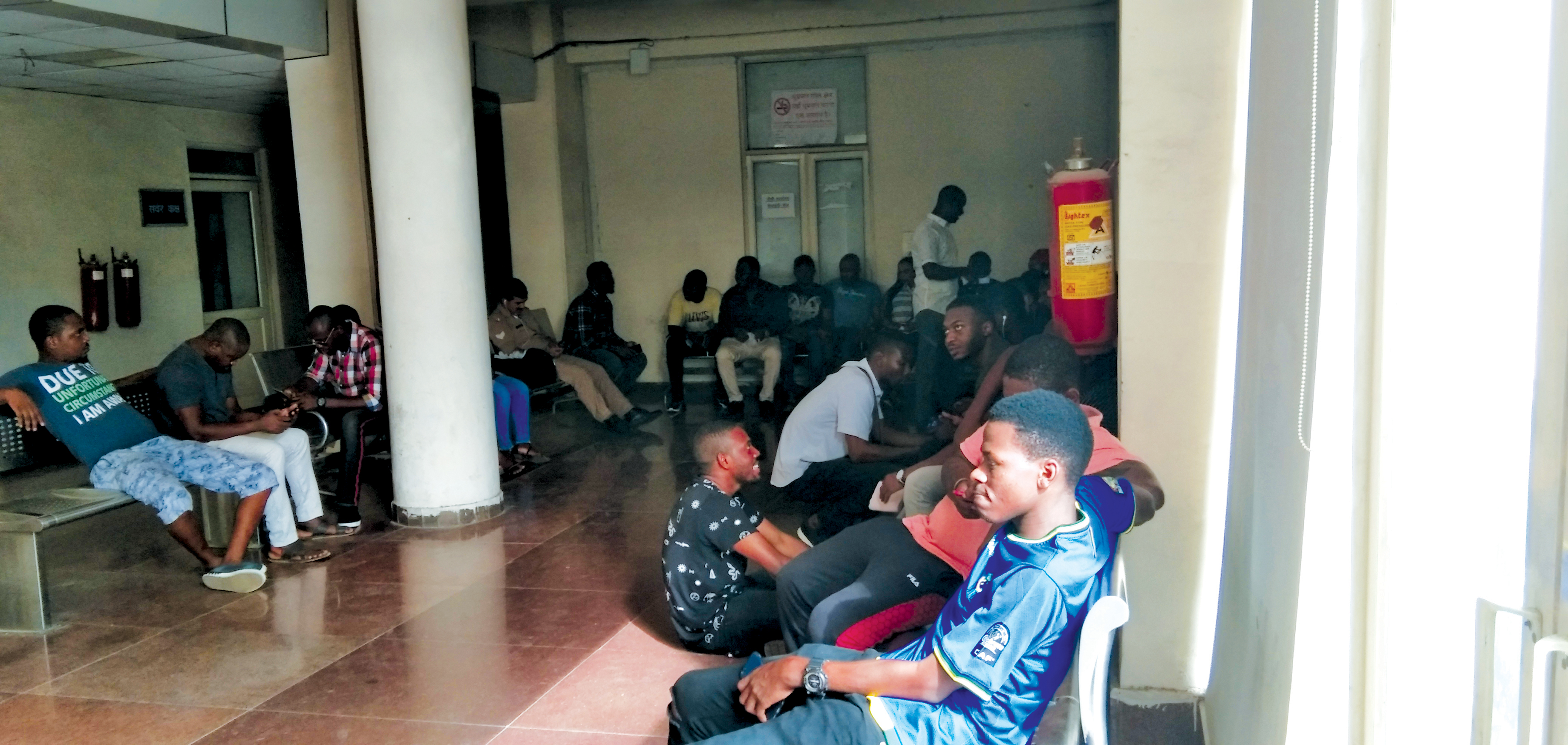UP Police’s ‘Operation Clean’ in Greater Noida led to the detection of at least 30 Africans illegally overstaying in India. Their deportation and the detention of others in jail raises humanitarian concerns
On July 10, Uttar Pradesh Police raided a bunch of apartments in Greater Noida. This was part of Operation Clean and targeted illegal immigrants. The raid, which took place at 5 am on Wednesday, created a stir as 60 foreign nationals were asked to produce documents pertaining to their stay in India.
According to police, they were suspected of staying in India with expired visas/passports. Some of them had student visas but were working in factories. One was found with 3.5 kg marijuana and 222 bottles of beer.
Operation Clean is an initiative where the police take up one misdemeanor at a time. Noida Police have listed 10 other issues of concern in the area. They are prostitution, illegal auto-rickshaws, illegal buses, public drinking, driving on the wrong side, number plates with casteist remarks, illegal parking, fake number plates, the safety of school buses and illegal migrants.
A day after the foreigners were detained, news reports came of about 17 people who under custody running away. So what exactly happened?
On July 12, a visit by this correspondent to Surajpur police station revealed that only 30 people remained out of the 60 originally arrested. Twelve presented their documents and were released; one was arrested for keeping stocks of intoxicating herbs and beer, found in their houses during the raid.
There was disarray at the police station as officials were busy drawing up a list of people in custody, whispering about the unrest amongst the people detained and their reluctance to reveal anything.

“Twenty tried to run away, but only 17 could. They were not arrested, just detained. The persons detained were allowed to use their phones and move around as we wanted them to produce their documents. They took advantage of it and disappeared”, a senior police-inspector, Surajpur police station said.
Most of the persons detained are African nationals. According to the list prepared by the police, one from Cameroon, two from Abidjan, three from Kenya, 10 from Nigeria, seven from Tanzania and one from Uganda; four are from the Philippines and two are from Mongolia.
The raids were conducted in specific apartment complexes as the police already had an idea of where illegal immigrants stay. Majority of them lived in the plush apartments of Sigma Sector, Alistonia, Eldeco and Omicron in Greater Noida.
Alistonia has seven blocks, out of which foreign nationals occupy five entirely. A considerable number of students staying there as prominent universities such as Noida International University and Gallgotia’s are in close proximity.
According to watchman Vinod Kumar Singh, Alistonia has 80% foreign nationals, mostly African nationals. It is difficult to spot Indians here. The African citizens seem to be at ease, leading regular lives. “They have been staying here for years now, living peacefully. Even if they fight, they fight among themselves. They have never troubled anyone else,” says the watchman.
Asked how are they able to pay rent for plush apartments if they don’t have valid documents, the watchman was clueless, “They might be involved in some illegal activities,” he conceded.
Shiv Dhar Bedi, who has been visiting Alistonia for the past four years as an electrician, observes that the number of women without documents is certainly more than men. It’s true that at the police station, 19 women and 11 men were among those detained. “All we care about is how they behave inside the compound,” he says. But for the police, foreigners overstaying is certainly a matter of concern.
Khalam Adamu, a Nigerian student at Noida International University, says, “We have valid documents, we can’t speak for others.” He and his compatriots Hamza Suleiman and Yasir have been here for more than two years.
Suleiman explains how the police rounded up residents near the gate of society and asked them to show documents. “People who could produce documents were let go and the remaining were detained. At that time, we had no idea who is getting arrested and not,” he said.
Hamza takes food to his friend in detention twice a day. “Living conditions are not good. They don’t have food facilities,” he says.

According to police, some people come on student visas and have extended their stay even after their courses get completed. “They come on student visas and start working also and live here beyond the permitted time”, explains Vaibhav Krishna, Gautam Buddha Nagar’s Senior Superintendent of Police (SSP) and mastermind of Operation Clean.
“Operation Clean focuses on issues which bother the society but we could not act upon them immediately as we had day-to-day crimes to deal with. There have been a lot of complaints about illegal drug sale and creating a ruckus,” he added.
Asked how many have had cases against them in the past, he says, “None. Most of them are working in factories as labourers. But they can’t stay in India as their visas have expired,” he said.
Explaining the operation, Krishna said, “We went to each and every house. Everyone was not cooperative. Some tried to escape.”
On July 13, around 50 Africans gathered at his office demanding appropriate facilities for the people detained and humanitarian considerations, especially for the 7-8 kids in detention. They also approached the Nigerian embassy.
An Indian married to an African was frantically walking from office to office demanding the return of her husband. Accompanied by their 3-year-old kid, she worried, “What if they send him back to his country and he can’t come back? Where will I go with a daughter, how will we survive?” she asked. They have been married for more than four years.
“Humare yaha ladkiya sasural mein rehti hai, tum bhi ghoom aao (Once married, daughters stay at their in-laws. You also go and visit yours),” the officer replies.
“Kids are not responsible for what their parents have done. If their parents don’t have documents, the action need to be against them and not the kids,” Tina, a student of Noida International University said.
Most of the people gathered were reluctant to speak out. “We hate Indian media as they haven’t presented us truthfully. Whatever we say, they come out with a different version. We come here to study, we pay fees, we help in increasing the rate of GDP. There would be people with some issues in the documents, but why misrepresent us as a community? We are straightaway associated with drugs which is not fair,” says Tega Napolean, a student who is here on an exchange programme with Stratford University.
According to Ani Benson Chikwada, a woman named Cina went through a miscarriage inside the station on July 17. He says, “The political situation back in Nigeria is not good. Parents don’t want their kids to grow up in that atmosphere. The US takes three months to sanction a visa, India does it in two weeks. So India becomes an economically viable option.”
But the legal process continues. The case has been transferred to FRRO (Foreign Regional Registration Office). “Filing an FIR forces to live here for long, as cases take a lot of time. That defeats the basic purpose of this operation. They will soon be deported,” says the SSP.





